Publications
Articles, publications, books, tools and multimedia features from the U.S. Institute of Peace provide the latest news, analysis, research findings, practitioner guides and reports, all related to the conflict zones and issues that are at the center of the Institute’s work to prevent and reduce violent conflict.
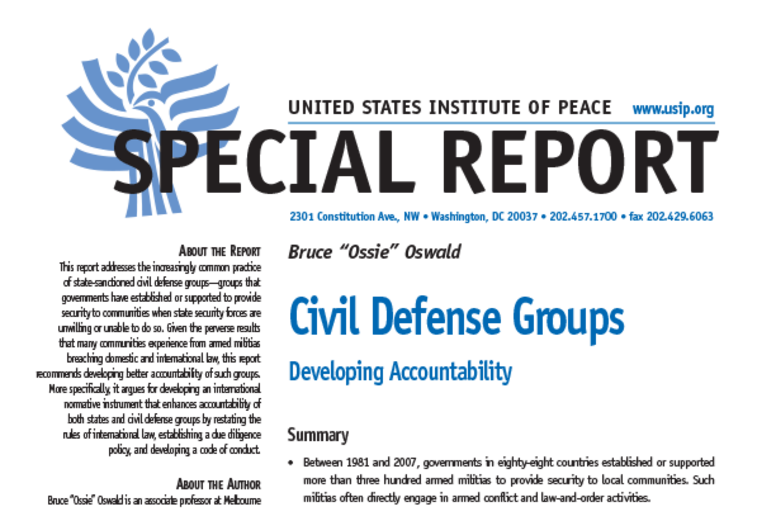
Civil Defense Groups
More than three hundred defense groups provide security to local communities in states around the world. While it is true that such groups can be a resource-efficient means for states to provide law and order to their communities, it is also true that they can worsen security.
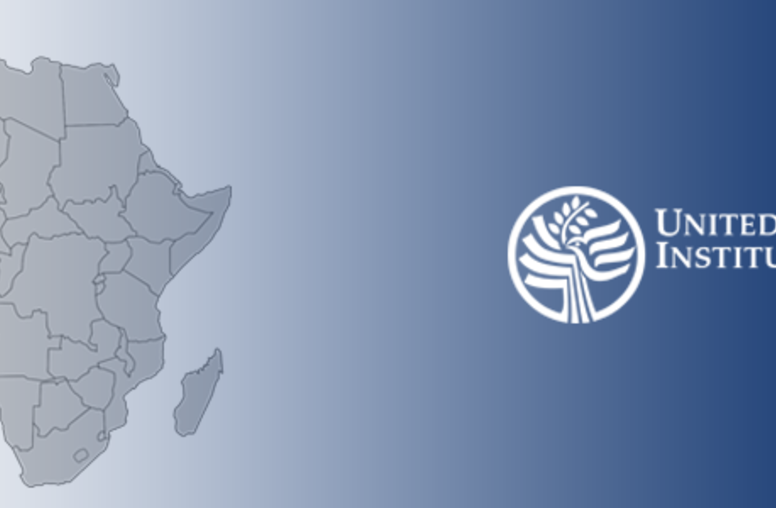
USIP: Summit Resources on Africa
What is Boko Haram and why are youths in Nigeria so drawn to it? What’s happening behind the headlines of war in South Sudan? In Libya? And what IS CVE (Countering Violent Extremism)? The probing research and on-the-ground action of the experts, partners and grantees of the U.S. Institute of Peace can help answer those questions and many more likely to arise during this first-ever U.S.-Africa Leaders Summit in Washington D.C. USIP has worked in Africa for years, and its staff has decades of e...
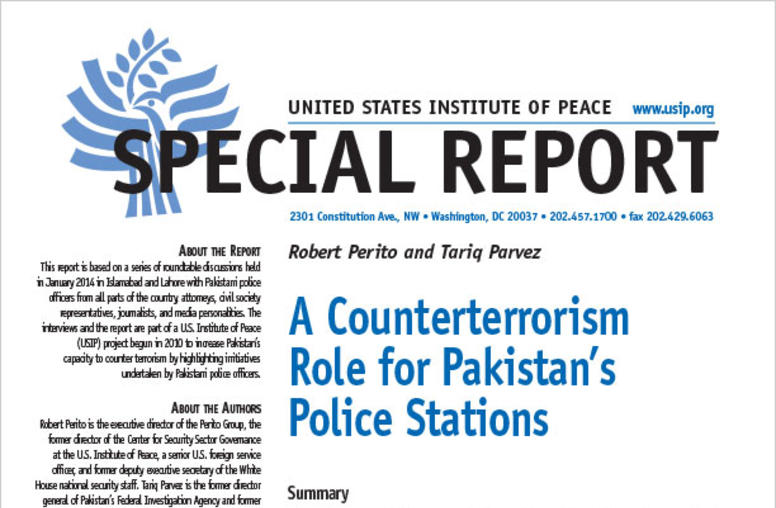
A Counterterrorism Role for Pakistan’s Police Stations
Violence is escalating in Pakistan, both in its megacities and along the border with Afghanistan—from terrorism, to secessionist insurgency, to sectarian conflict, to ethnic turf wars. The police station and the police who staff it, despite their historic role as a symbol of government authority and responsibility for public order, are woefully ill prepared and ill equipped to meet these challenges. This report, part of a project to increase Pakistan’s capacity to combat terrorism, explores t...

World Institute on Disability (WID) Working Paper: The Involvement of Persons with Disabilities in Conflict Resolution and Peacebuilding Efforts
In 2007, the UN Secretary-General's Policy Committee defined peacebuilding as follows: "Peacebuilding involves a range of measures targeted to reduce the risk of lapsing or relapsing into conflict by strengthening national capacities at all levels for conflict management, and to lay the foundations for sustainable peace and development. Peacebuilding strategies must be coherent and tailored to specific needs of the country concerned, based on national ownership, and should comprise a carefull...
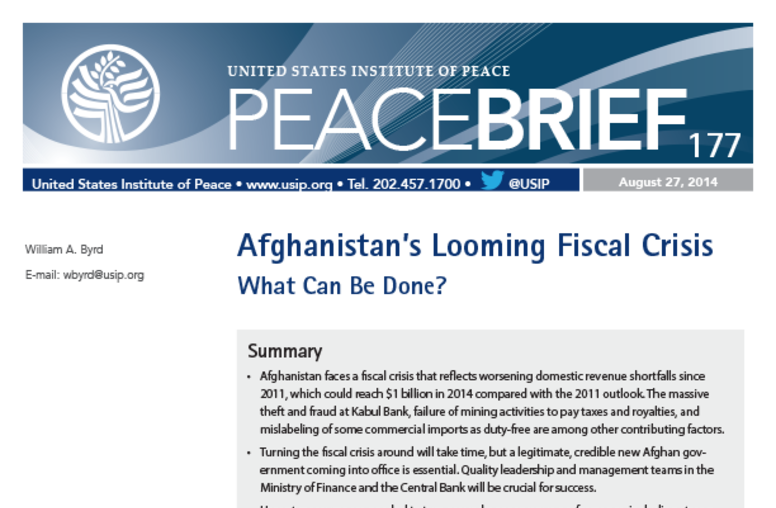
Afghanistan’s Looming Fiscal Crisis: What Can Be Done?
Afghanistan faces a fiscal crisis due in large part to worsening domestic revenue shortfalls. Averting this crisis will require strong leadership from the new Afghan government that will be replacing the Karzai administration. The country’s revenue system and collections need to be improved, corruption reduced, new revenue sources developed and expenditures cut. More international aid also is needed to help stabilize Afghanistan’s budget as the government undertakes these reforms.
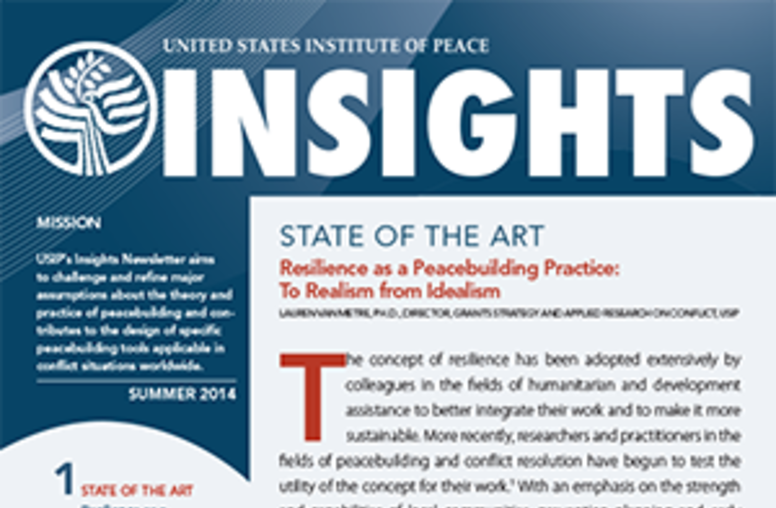
Summer 2014 Insights Newsletter - Resilience
Insights highlights major questions on the research and practice of peace and conflict, to more than 10,000 subscribers from around the world.

Culture and Conflict Summit Resource Guide
This resource guide is a beginning of a comprehensive resource for educators and peacebuilders interested in using arts both inside and outside academia. It is meant to be a useful guide to those who are teaching about using arts in conflict scenarios for the purposes of peace, and those who will engage in it in practice.
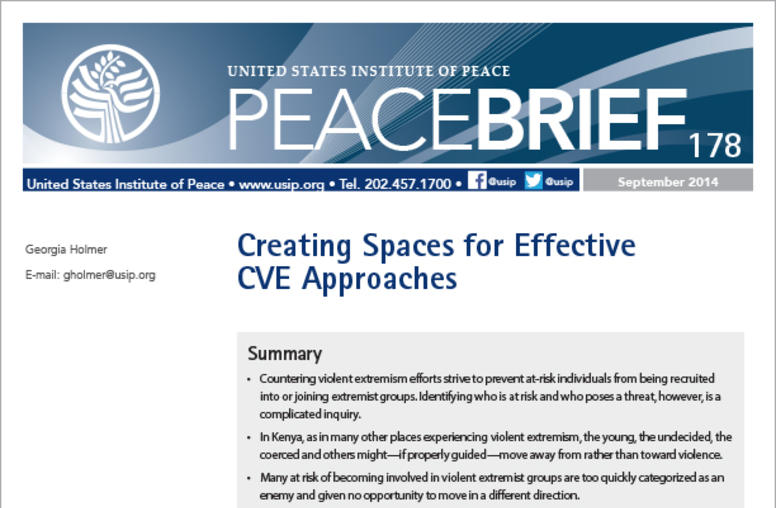
Creating Spaces for Effective CVE Approaches
Unlike other counterterrorism strategies, countering violent extremism (CVE) focuses on preventing individuals from being recruited into or joining violent extremist groups. CVE is a complex endeavor, largely because the reasons individuals become involved in extremist violence are in themselves complex and the dynamics are unique to each conflict. Using Kenya as an example, and drawing on observations from a recent visit, the author explores how promoting a more nuanced understanding of radi...
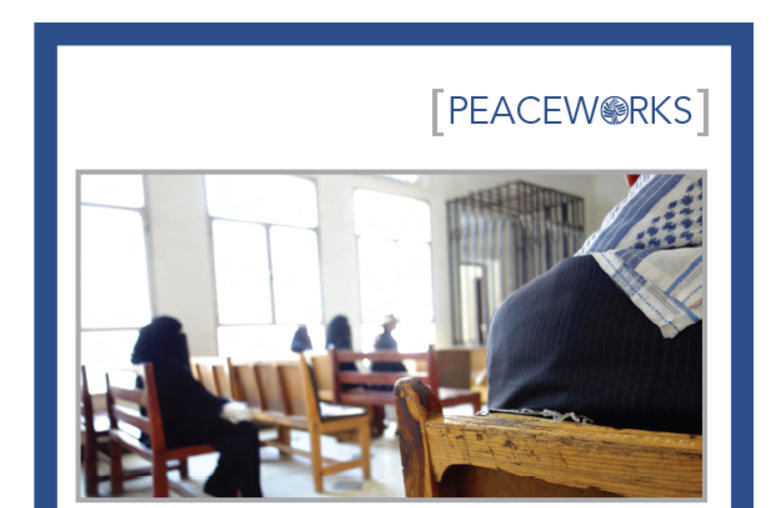
Justice in Transition in Yemen
This research is part of a three-year United States Institute of Peace (USIP) project that explores how Yemen’s rule of law and local justice and security issues have been affected in the post-Arab Spring transition period. A complement to other analytical and thematic pieces, this large-scale mapping provides data on factors influencing justice provision in half of Yemen’s governorates. Its goal is to support more responsive programming and justice sector reform. Field research was managed b...
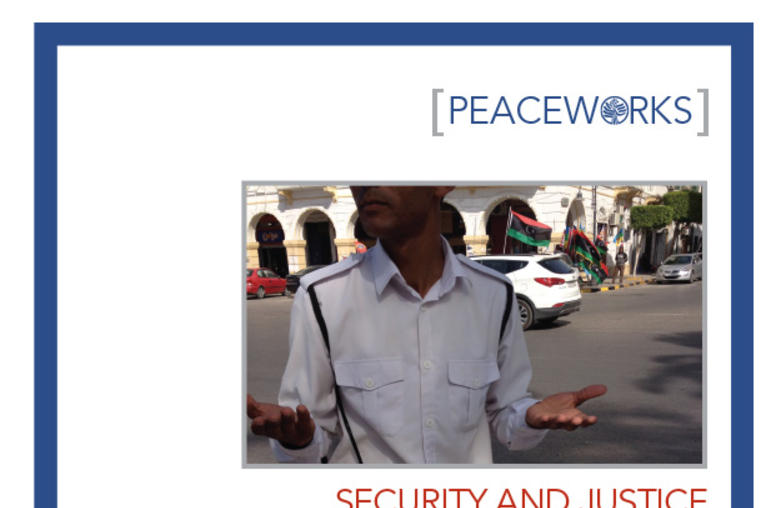
Security and Justice in Post-Revolution Libya
Three years after the death of Muammar Qaddafi and the end of the revolution in Libya, security and justice are stalled and elusive despite the proliferation of security providers. The power of the gun prevails over the rule of law. Many see no end in sight. Based on a nationwide survey and drawn from interviews and focus group sessions, this report—supported by the USIP and the Small Arms Survey—tracks security and justice in Libya from before the revolution through today, its realities, and...